
Last Updates

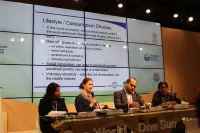
The role sustainable lifestyles can play in achieving a paradigm shift to sustainability is acknowledged in both the Sustainable Development Goals and the Paris Agreement of 2015. They can be defined as “responsible living with our total surrounding and ourselves”, thus including aspects like global equity (see previous blogpost). Nevertheless, the vast majority of scientific literature focuses on ecological sustainability.
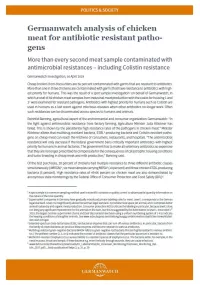
Antibiotics in intensive animal husbandry - after years of efforts by the German government, this should no longer be a cause for concern. But unfortunately it is, as a study by Germanwatch shows: More than every second chicken in discounters is contaminated with antibiotic-resistant pathogens. Every third chicken meat sample was contaminated with germs that have resistance to antibiotics with highest priority for humans.

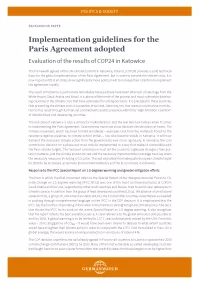
The so called rulebook agreed at the Climate Summit in Katowice, Poland (COP24) in December 2018 provides a solid technical basis for the global implementation of the Paris Climate Convention. To avert the climate crisis, however, it is essential that all states show significantly more political will to implement the agreement swiftly. In this follow-up paper, we present the most important decisions, above all on the elements of the implementation guidelines and - where relevant - the political compromises between the states on them. We also analyse where we consider the rules to be robust enough - and where not.

The year 2019 will be key for future climate policy in Germany and Europe. Finance plays a key role in improving climate protection and sustainable growth.
To this end, Germany should learn from pioneering countries for “Green Finance”. In the seven articles in our series, international authors will therefore explain their country's approach towards a green financial system, addressing opportunities, hurdles and unanswered questions.
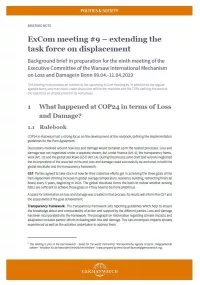
This briefing note provides an outlook to the upcoming ninth meeting of the Executive Committee (ExCom) of the Warsaw International Mechanism on Loss and Damage (WIM) in Bonn 09.04.-11.04.2019. One main topic under discussion will be the mandate and the Terms of Reference of the Task force on displacement, defining the work in its next phase.
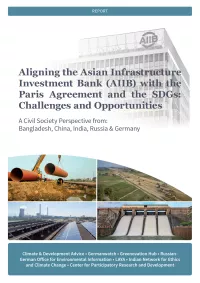
Three years after the Asian Infrastructure Investment Bank (AIIB) commenced operations, this report analyses the Bank's guidelines and past experience in selected countries (China, India, Bangladesh, Russia). We find that the AIIB’s policies and strategies show a strong narrative of transformational change and sustainability. It is also the fastest-growing MDB in terms of both membership and capital investments. However, looking at investment criteria, the AIIB is not yet setting new standards in terms of Paris-alignment. The bank does also not yet reach international standards with regard to accountability, information disclosure and complaint handling.
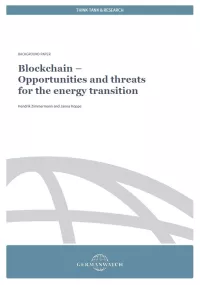
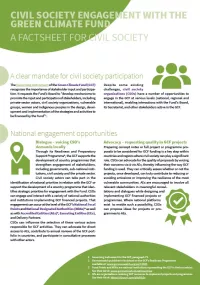
The Green Climate Fund (GCF) recognizes the importance of stakeholder input and participation in the design, development and implementation of its financed strategies and activities to reduce CO₂ emissions and support developing countries that are vulnerable to the effects of climate change. Despite some existing challenges, these stakeholders, including private sector actors, civil society organizations (CSOs), vulnerable groups, women and indigenous peoples, can engage in the GCF at various levels. The factsheet is published under the project “CSOs readiness to the GCF – focus Africa” jointly implemented by Germanwatch and CARE International with support from a consortium of African networks and civil society organizations. The project aims to support broader African civil society engagement in the critical early implementation phase of the GCF.
